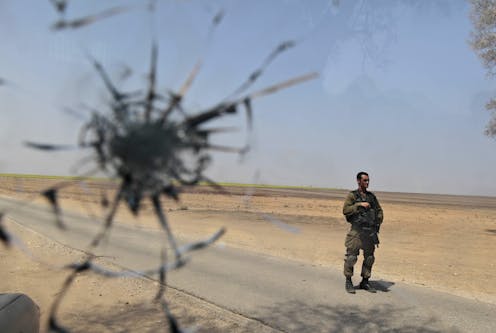how Israel's military-industrial complex feeds the global arms trade
- Written by Kevin Foster, Associate Professor, School of Languages, Literatures, Cultures and Linguistics, Monash University

In The Palestine Laboratory: How Israel Exports the Technology of Occupation Around the World[1], Antony Loewenstein details how Israel’s military-industrial complex has grown from a minor industry into a dominant economic and social force at home and abroad.
He traces how, since 1967, the Occupied Territories and their people have furnished Israel with a living laboratory for their application and development of border security and surveillance systems, phone-hacking spyware, tracking and targeting technologies, as well as more traditional weapons systems. Tried and tested in the field, these systems are then packaged and sold for export.
In the wake of the September 11 terrorist attacks and the wave of anxiety they engendered, demand for Israeli hardware and know-how exploded. Israel is now one of the world’s top-ten weapons dealing nations[2]. Its defence enterprises market everything from small arms to killer drones, from spyware to surface-to-air missiles. If it flies, watches, listens or goes bang, Israeli companies make and will sell it to (just about) anybody.
The Israeli economy, one critic noted, has “abandoned oranges for hand grenades”. Perhaps. But, as Loewenstein notes, everybody wants hand grenades nowadays.
Review: The Palestine Laboratory: How Israel Exports the Technology of Occupation Around the World – Antony Loewenstein (Scribe)
















